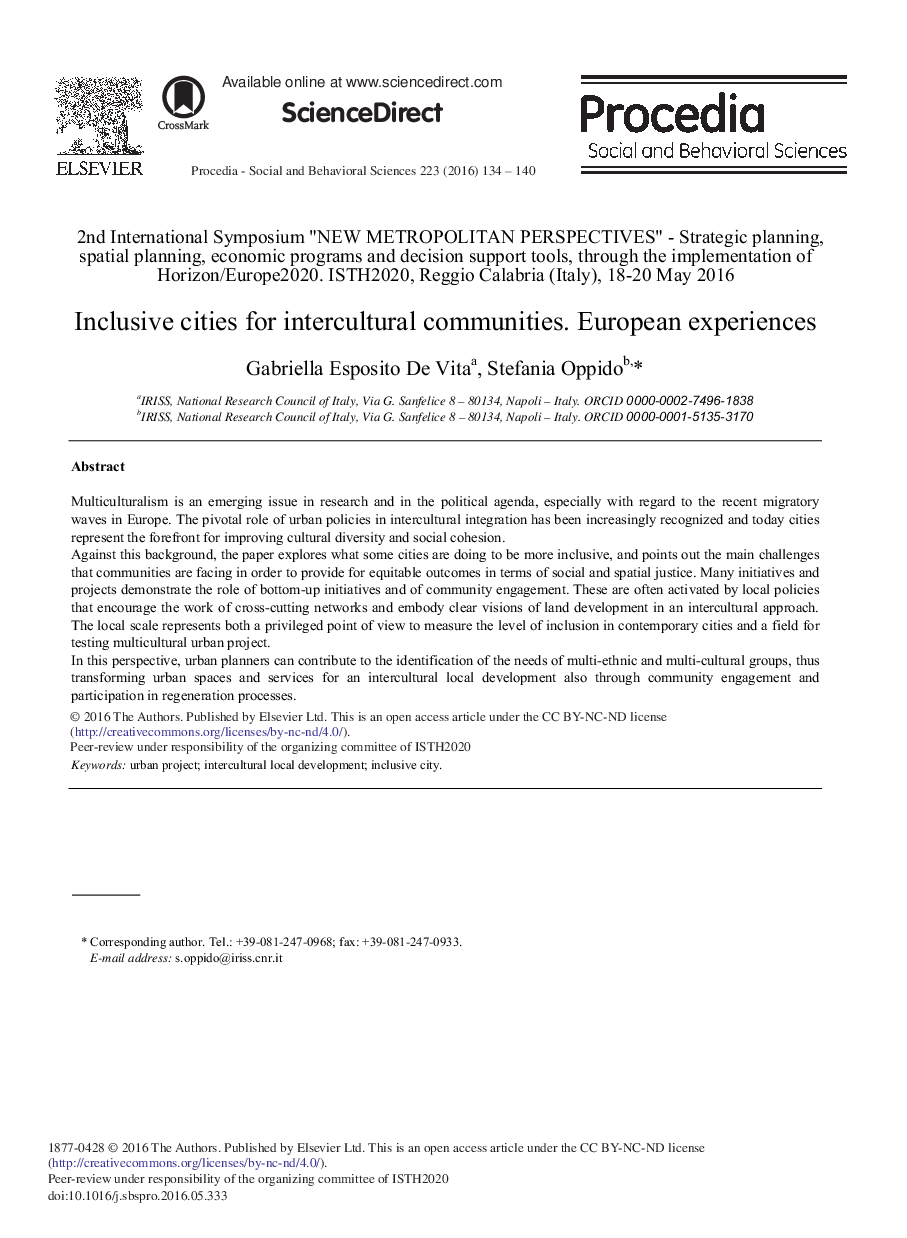| Article ID | Journal | Published Year | Pages | File Type |
|---|---|---|---|---|
| 1107547 | Procedia - Social and Behavioral Sciences | 2016 | 7 Pages |
Multiculturalism is an emerging issue in research and in the political agenda, especially with regard to the recent migratory waves in Europe. The pivotal role of urban policies in intercultural integration has been increasingly recognized and today cities represent the forefront for improving cultural diversity and social cohesion.Against this background, the paper explores what some cities are doing to be more inclusive, and points out the main challenges that communities are facing in order to provide for equitable outcomes in terms of social and spatial justice. Many initiatives and projects demonstrate the role of bottom-up initiatives and of community engagement. These are often activated by local policies that encourage the work of cross-cutting networks and embody clear visions of land development in an intercultural approach. The local scale represents both a privileged point of view to measure the level of inclusion in contemporary cities and a field for testing multicultural urban project.In this perspective, urban planners can contribute to the identification of the needs of multi-ethnic and multi-cultural groups, thus transforming urban spaces and services for an intercultural local development also through community engagement and participation in regeneration processes.
